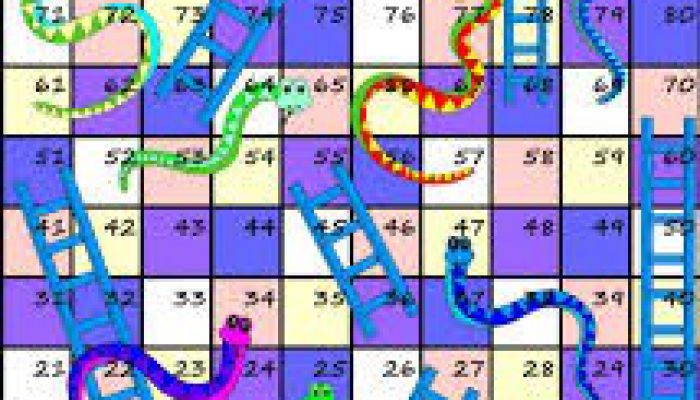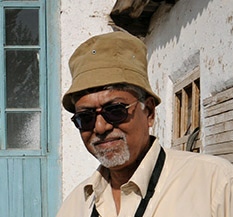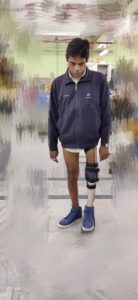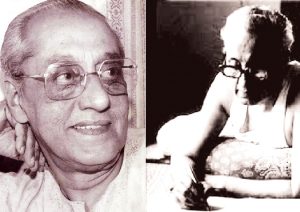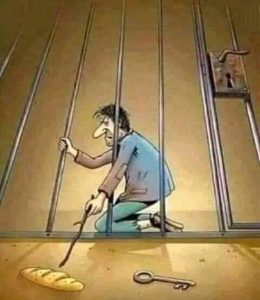The weather has become so unpredictable these days.
When Panchu walked out of the Institute in the early April Kolkata street, he found the warmth of the sun perched directly above, comfortable enough. The world was a nice place to live in, thought Panchu as he walked proudly, military fashion, with his chest drawn forward and arms swinging freely. Left right left, he whispered to himself, as he had been taught in the Institute during his training period. He smiled indulgently as some unruly kids returned from school, jostling and pushing one another. Boys will be boys. He carefully removed a beetle from his shirt so as not to hurt it and placed it on a tree trunk. He patted his brother, who was walking by his side with the pair of crutches in one hand and the packet of sweets in the other. From time to time he looked up admiringly at his older brother. This has clearly been Panchu’s day.
And then the drama unfolded. While crossing the B T Road Panchu noticed the overtaking bus a little too late, rushing in like a furious demon. While his brother scurried back safely, Panchu could not. Before he fell down and passed out, he could hear with agonizing slowness, shouts of “gone”, “finished,” from passersby, the crunching of tires and the screeching of the bus as it rushed away.
Life has become so unpredictable these days.
His parents had named him Panchanan. His father Narayan Chandra Das was a helping hand in construction works. He had beads around his neck and he was a part time kirtansinger.They stayed in the suburban area called Jagaddal( which literary means a place or a thing which does not move). Everybody seemed to have forgotten Panchu’s mother’s name including Panchu’s father. She was addressed by all and sundry as Panchu’sma (mother). She used to work as a helping hand in the houses of better-off families.
Panchu became Banda Pachu during his early adolescence. It’s a story most have forgotten. There were a lot of date trees in Jagaddal, even in the houses of the poor. Petty contractors would hire the trees on an yearly basis and collet the date juice by scrapping the bark and hanging clay pots overnight. The contractors would collect the pots in early morning.
Panchu and his gangs would reach there earlier and pierce a hole in the clay pots with a sling shot and have their belly’s full. The joyful days ended when the contractors apprehended them during the act and took their revenge. Panchu , identified as the leader, was tied to a palm tree and beaten with a danda (stick).
That would have ended the tragic saga of date juice. But Panchu no longer remained Panchu. He became Vanda Fore (pot breaker) Panchu. Over time he became Vanda Panchu and from then on Banda Panhu. This name stuck on.
For some time Panchu worked as a helper to his father. Well, it did not suit him. With the help of a friend he became a vendor in the local trains. Ear buds, tip buttons, scotch brites- and so on. These had their advantages. These were not perishable like peanuts and sweets. Well the profit was good enough. The daily passengers of Shantipurlocal addressed him as Banda.
Because there was another Panchu vendor in Shantipur local. Panchu – Baowla meaning one who talks two much. Passengers joked, Baowla sold words not the lousy tea. So there were two Panchus in Shantipur local – Banda and Baowla.
The catastrophe occurred not on the train, but in a bus. People had blocked the railway lines on some local issue. It was quite late and Panchu boarded a overcrowded bus hanging precariously on the footsteps. And slipped. And lost his right foot, crushed beyond repair by the rear wheels. After two months in the hospital Panchu returned home otherwise fit but without his right leg below the knee. A local NGO gifted him a pair of crutches. And Banda Panchu became Langra{lame) Panchu.
Life returned to normal. He became quite proficicient with his crutches. He could walk and run faster than ordinary mortals with the help of his crutches. Occasionally the leg would ache and pain – one that was not there.
But the problem became vending in the train. The “shop” in one hand and the crutch in the other – climbing the train became a difficult proposition. Passengers helped, but.
So panchu became a “fotter” mechanic. A plastic sheet, a candle and a box of matches were that were needed. On the boarding a compartment he would shout out “fotter? Do you need a fotter for your watch?’ One day a passenger corrected him, “ HoyPanchu, it is not a fotter. It is a protector.” Panchu’s nonchalant reply, ‘I must say the name people know and understand.”
There was another passenger who gave him the good news. Go to the government hospital by riding an auto from Belghoria. They will give you an artificial limb – free of cost.
* *
When Panchu landed in the Rehabilitation Institute it was going through a flurry of activities. It was the second time the same year the whole building was painted afresh. The reason very obvious – a minister from Delhi, who had postponed his visit earlier the same year at the very last moment, was landing an attack soon now.
There was nothing wrong with the earlier paints except that corners of every staircase and landing was decorated with post- modern designs with spits of betel spiting ghosts, whom the Director with his inscrutable surveillance had failed to apprehend. Hence the second coat.
These visits from dignitaries from Delhi came as a blessingso far as facelifts were concerned. Cobwebs resting idle throughout the year got mopped up; flower pots appeared by magic to line up the long corridors; indoor patients got new bed sheets and nursing sisters for once forgot their rheumatism and moved briskly in well starched spotless dresses.
But at the same time tensions mounted and tempers ran high. Senior doctors and executives, themselves worried to the hilt, picked on the staff, who, not used to coming on time and working through scheduled hours, were already in a sullen mood.
Panchu, however was lucky to have attended the Institute prior to the minister’s visit. His initial visits were bewildering and edgy, but finally he got used to the environment.
First Encounter
What do you do?
Nothing.
Get an income certificate and a photograph and we will give you an artificial limb.
Second Encounter
What do you mean no income?
I don’t have an income sir.
The government doesn’t believe that. Get a proper certificate stating your income either from your BDO or from your DM. Panchayet Pradhan won’t do.
Third Encounter
This is OK. One thousand rupees a month signed by your BDO.
I don’t have an income sir.
Shut up and go to the limb department.
The minister’s visit was imminent when Panchu’s limb was getting ready. The Director scouting for patients to be paraded before the minister spotted Panhu in the limb department and for Panchu events took a better turn.
The final day was a grand occasion that Panchu would remember forever. In front of rows of smiling doctors and other staff, the minister presented him with artificial limb, which he donned and walked a few steps amid claps. The minister standing beside Panchu, while posing for the inevitable photograph, patted him in the backand announced a series of future programmes through cheers, which Panchu hardly understood.
At the end of the ceremony Panchu proudly started for his journey home on two legs instead of one with the packet of sweets and fruits, with his brother alongside swingingthe discarded pair of crutches in his hands.
* *
The crowd around fallen Panchu heaved a sigh of relief, when they found that the killer vehiclehad crushed into pulp the artificial limb, living Panchu intact except for a few bruises and cuts. Pachu’s brother got over the initial shock, but like Panchu was completely bewildered.
With a faint hope Panchu limped back to the Institute clutching the crushed prosthesis in his hands.
Fourth Encounter
Can I have another prosthesis.
What! We just gave you one.
A bus ran over me.
Are you joking with me?
No. It didn’t run over me. It ran over my right leg with the artificial limb.
Good God! You are a lucky chap.
So can I have another artificial limb?
No. Absolutely not. We can give you another limb
Only after two years.That’s the government rule.
But the minster said —
Get out.
Panchu trudged along on his crutches. He frowned angrily at a group of rowdy school children returning home. The late afternoon sun was hot and scorching. Panchu stood awhile to scratch his itching neck, found a beetle and threw it down with all his might in roadside drain.
Poor beetle, the weather is so unpredictable these days.
(As per the ADIB Scheme of the Government of India anartificial limb can only be replaced after two years.)
This story belongs to a series ‘The Stories of Rehabilitation’.

